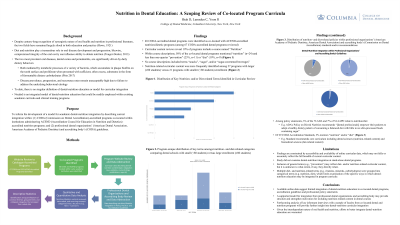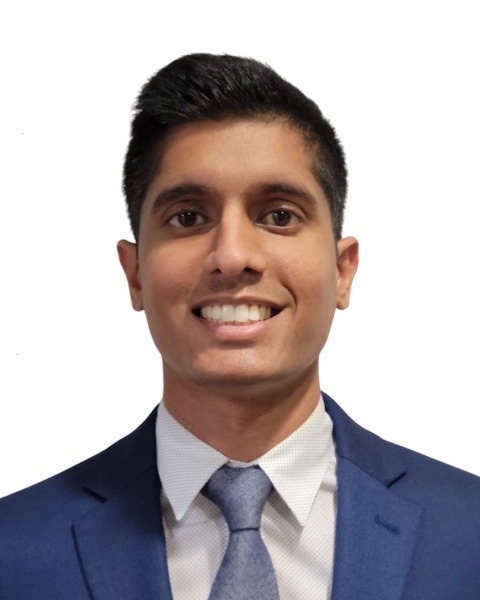Other
202 - Nutrition in Dental Education: A Scoping Review of Co-located Programs


Dhaval Shah, DDS
Pediatric Dental Resident
NewYork-Presbyterian Kids (New York, NY)
NewYork-Presbyterian Kids/Columbia
New York, New York, United States- RF
Ryan Foree, DDS, MA
NewYork-Presbyterian Kids
- CL
Christie Lumsden, PhD, MS, RDN
Columbia University Medical Center
New York, New York, United States - RY
Richard Yoon, DDS
Associate Professor of Dental Medicine
Columbia University Medical Center
New York, New York, United States
Presenting Author(s)
Co-Author(s)
Research Mentor(s)
Program Director(s)
Purpose: This scoping review aims to describe dental-nutrition education integration within CODA (Commission on Dental Accreditation)-accredited programs co-located within institutions administering ACEND (Accreditation Council for Education in Nutrition and Dietetics)-accredited nutrition programs and how it is described in accreditation and professional guidelines.
Methods: Publicly-available online data were reviewed evaluating: (1) predoctoral dental program curricular content (e.g., websites, publications, reports) from 48 co-located programs (as of 2020-2021); (2) CODA accreditation standards related to nutrition/dietetics; and (3) professional dental organization recommendations (e.g., AAPD/ADA policy statements and practice guidelines) supporting dental-nutrition integration. Data were qualitatively analyzed, recurring concepts were then categorized into key terms (e.g., “diet”, “nutrition”, “sugar”), coded to identify common themes and summarized using descriptive statistics.
Results: Curricular content data reveal 19% of programs include a course named “Nutrition”; and 50%, 23%, and 19% mentioned “nutrition” (n=24), “prevention” (n=11), or “diet” (n=9) in course descriptions, respectively. No programs included the terms “snacks”, “sugar”, and/or “sugar-sweetened beverages” in descriptions. Nutrition-related curricular content was more frequently identified among 27 programs with larger ( >80 students) versus 21 programs with smaller enrollment ( < 80 students). Of 29 CODA Accreditation Standards, 3% mention “diet” and “nutrition.” Among policy statements and practice guidelines, 3% of the 76 ADA and 7% of 54 AAPD relate to nutrition/diet.
Conclusion: Despite inherent limitations, available online data suggest limited integration of dental-nutrition education in co-located dental programs, accreditation guidelines and professional policy statements. Given the interdependent nature of oral health and nutrition, efforts to better integrate dental-nutrition education are warranted.
Identify Supporting Agency and Grant Number:
Research supported by a 2022 Colgate Palmolive Fellowship in Nutrition, Oral Health/Dental Education Research Grant

.jpg)